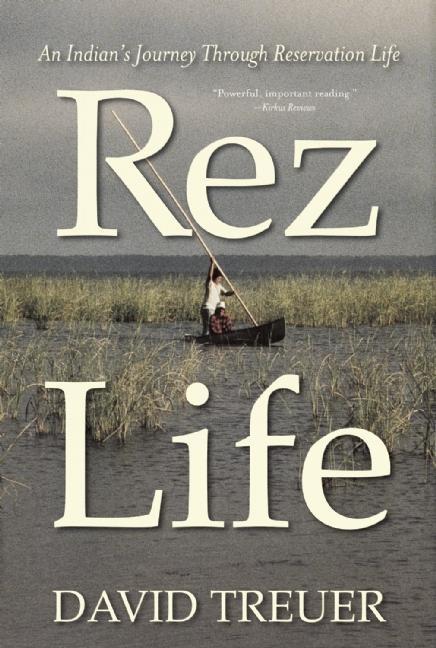Book Description
for Rez Life by David Treuer
From the Publisher
A prize-winning writer offers "an affecting portrait of his childhood home, Leech Lake Indian Reservation, and his people, the Ojibwe" ( The New York Times).
A member of the Ojibwe of northern Minnesota, David Treuer grew up on Leech Lake Reservation, but was educated in mainstream America. Exploring crime and poverty, casinos and wealth, and the preservation of native language and culture, Rez Life is a strikingly original blend of history, memoir, and journalism, a must read for anyone interested in the Native American story. With authoritative research and reportage, he illuminates issues of sovereignty, treaty rights, and natural-resource conservation. He traces the policies that have disenfranchised and exploited Native Americans, exposing the tension that marks the historical relationship between the US government and the Native American population. Ultimately, through the eyes of students, teachers, government administrators, lawyers, and tribal court judges, he shows how casinos, tribal government, and the Bureau of Indian Affairs have transformed the landscape of modern Native American life.
"Treuer's account reads like a novel, brimming with characters, living and dead, who bring his tribe's history to life." — Booklist
"Important in the way Dee Brown's Bury My Heart at Wounded Knee was when it came out in 1970, deeply moving readers as it schooled them about Indian history in a way nothing else had." — Minneapolis Star-Tribune
"[A] poignant, penetrating blend of memoir and history." — People
A member of the Ojibwe of northern Minnesota, David Treuer grew up on Leech Lake Reservation, but was educated in mainstream America. Exploring crime and poverty, casinos and wealth, and the preservation of native language and culture, Rez Life is a strikingly original blend of history, memoir, and journalism, a must read for anyone interested in the Native American story. With authoritative research and reportage, he illuminates issues of sovereignty, treaty rights, and natural-resource conservation. He traces the policies that have disenfranchised and exploited Native Americans, exposing the tension that marks the historical relationship between the US government and the Native American population. Ultimately, through the eyes of students, teachers, government administrators, lawyers, and tribal court judges, he shows how casinos, tribal government, and the Bureau of Indian Affairs have transformed the landscape of modern Native American life.
"Treuer's account reads like a novel, brimming with characters, living and dead, who bring his tribe's history to life." — Booklist
"Important in the way Dee Brown's Bury My Heart at Wounded Knee was when it came out in 1970, deeply moving readers as it schooled them about Indian history in a way nothing else had." — Minneapolis Star-Tribune
"[A] poignant, penetrating blend of memoir and history." — People
Publisher description retrieved from Google Books.


